| | China and India could curb Russia oil imports over new US sanctions, Chinese carmakers make a push i͏ ͏ ͏ ͏ ͏ ͏ |
| |   Chennai Chennai |   Vladivostok Vladivostok |   Qingdao Qingdao |
 | Flagship |  |
| |
|
The World Today | 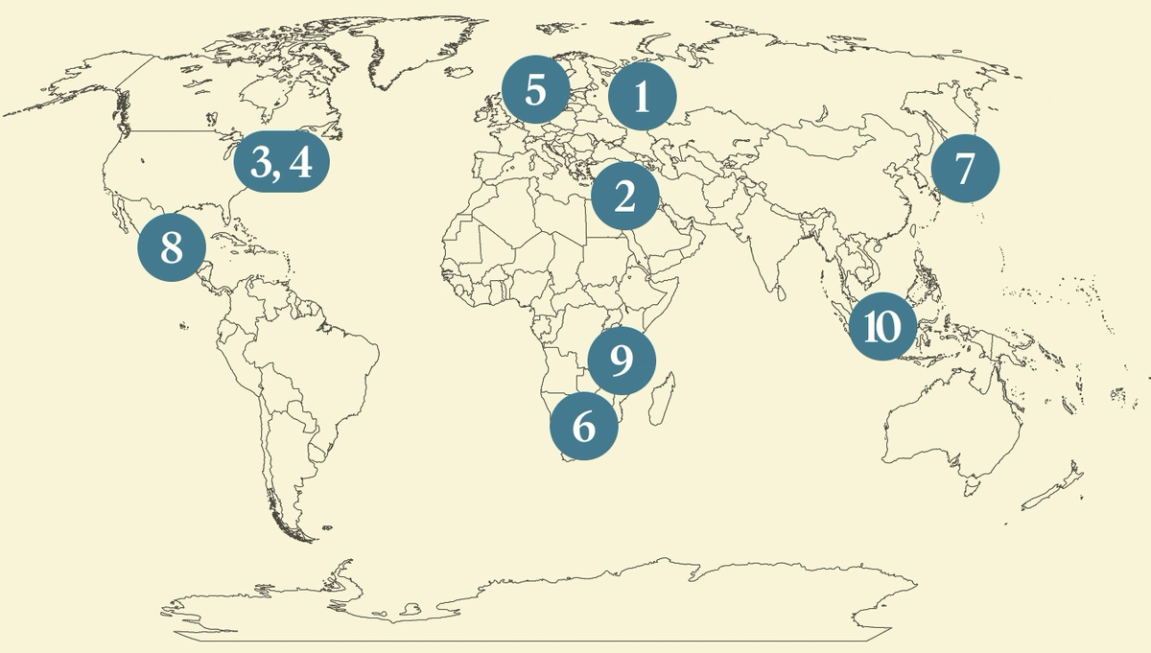 - Blow to Russian war economy
- Vance blasts Israel’s ‘stunt’
- Trump pardons Binance’s CZ
- NBA, mafia gambling arrests
- Novo Nordisk’s new ‘king’
- China carmakers eye SA
- Japan attracts China students
- Bike-sharing booms
- AI helpful to farmers
- US passport power declines
 A debate in the UK over indigenous art, and Semafor’s Andy Browne on China’s two economy problem. |
|
India, China to curb Russian oil imports |
 New US sanctions on Russia’s two biggest oil firms will likely push India and China — its top two customers — to curb purchases, dealing a blow to Moscow’s war economy. Crude flows from Russia to India’s largest refineries are set to fall “to near zero,” Bloomberg wrote, while Chinese state oil majors have already suspended purchases, Reuters reported. The restrictions, aimed at pressuring the Kremlin over the war in Ukraine, mark a major change in Washington’s policy, and could have a more immediate and material impact than past pressure tactics, analysts said: President Donald Trump has tried — and failed — to use tariffs to force New Delhi to cut Russian energy purchases. |
|
Vance blasts Israel’s annexation push |
 Nathan Howard/Pool via Reuters Nathan Howard/Pool via ReutersUS Vice President JD Vance blasted Israeli lawmakers’ aspirations of annexing the occupied West Bank, signaling a rift between Washington and Israel’s hard right. Vance’s remarks, calling the Israeli parliament’s vote supporting annexation a “very stupid political stunt,” come at a fraught time of political maneuvering in the region: The US is working to keep a Gaza ceasefire intact, and the West Bank vote angered Arab nations that are critical to the truce. Vance’s frustration shows that those in the White House who want to expand the Abraham Accords “have routed the Annexationists… and that has consequences beyond just the issue of the West Bank,” The Atlantic’s Yair Rosenberg said. |
|
Trump pardons Binance founder |
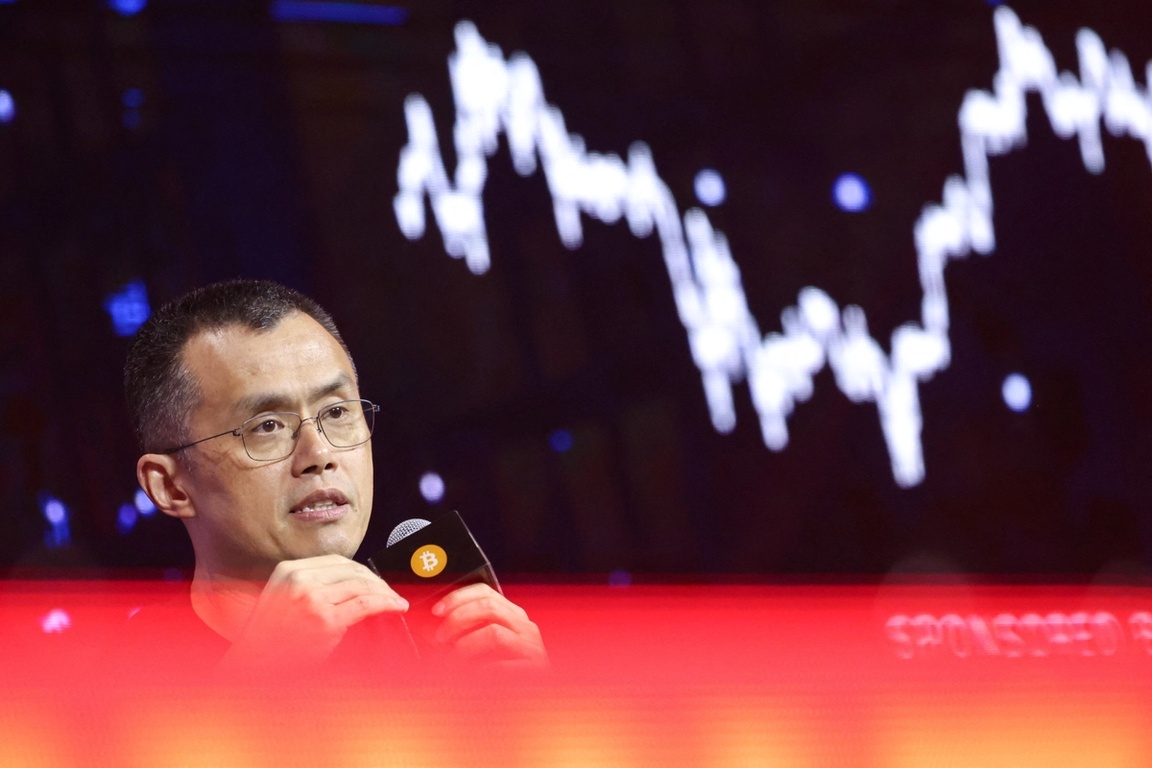 Tyrone Siu/Reuters Tyrone Siu/ReutersUS President Donald Trump on Thursday pardoned Binance founder and former CEO Changpeng Zhao, who spent four months in prison after pleading guilty in 2023 to violating US money laundering regulations. The pardon follows extensive lobbying by Zhao and the cryptocurrency firm, a key supporter of the Trump family’s crypto interests, which have boosted the president’s wealth by billions of dollars. Binance had faced difficulties in securing regulatory licenses and opening accounts around the world stemming from Zhao’s conviction. Trump’s pardon will “pave the way” for the world’s largest crypto exchange to resume US operations, The Wall Street Journal wrote. Trump has pardoned several other crypto executives, including Silk Road founder Ross Ulbricht and employees of the BITMEX exchange. |
|
Massive US gambling sting |
 Terry Rozier and Chauncey Billups. Soobum Im/Dale Zanine-Imagn Images via Reuters Terry Rozier and Chauncey Billups. Soobum Im/Dale Zanine-Imagn Images via ReutersUS authorities arrested 31 people, including a prominent NBA coach and player, as part of a sweeping investigation into alleged illegal gambling and sports betting. The yearslong probe focused on two schemes involving fixed underground poker games and fraudulent basketball wagers, both allegedly conducted with the participation of athletes and New York-based elements of Italian organized crime. Tens of millions of dollars were fraudulently obtained in both schemes, officials said. The sting will inevitably heighten scrutiny of the growing relationship between US sports leagues and the legal gambling industry, as more scandals involving current and former players spill into the open: “Game integrity concerns are becoming real,” Axios wrote in July. |
|
Boardroom shakeup at Novo |
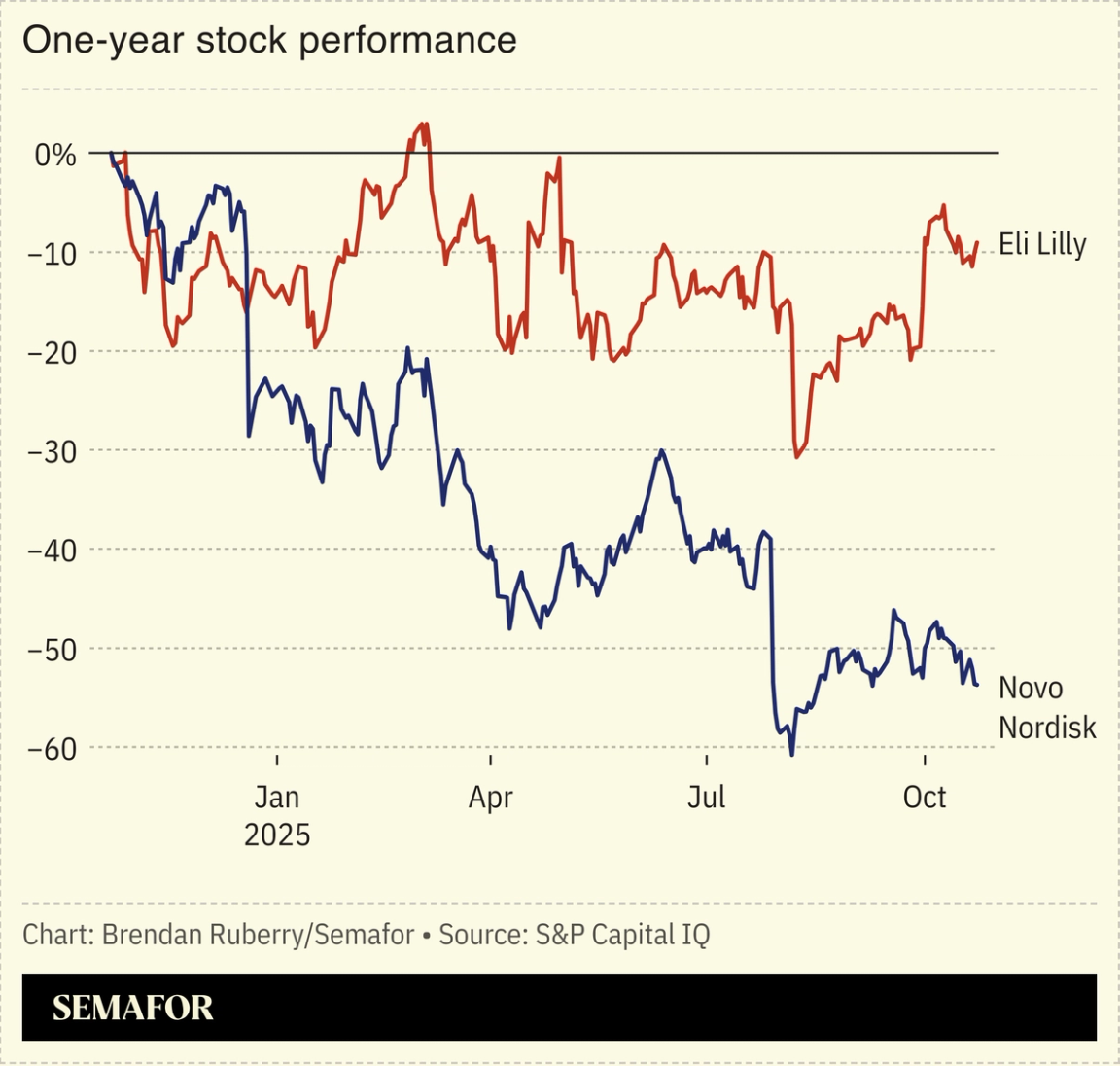 One man has amassed remarkable power at Danish pharmaceutical giant Novo Nordisk at a critical time for the company. Former CEO Lars Rebien Sørensen was named board chair this week; he is also chair of the firm’s majority owner, the Novo Nordisk Foundation. “This is a power concentration I have not seen in Danish business,” a Copenhagen-based professor told the Financial Times. The boardroom shakeup comes as the drugmaker behind weight-loss juggernauts Ozempic and Wegovy has struggled to keep up in the US market against rival Eli Lilly, whose flagship obesity drug is set to leapfrog Novo’s in sales this year. Both companies are working on oral weight-loss medications; analysts say Eli has the edge based on trial results. |
|
Chinese automakers eye SAfrica |
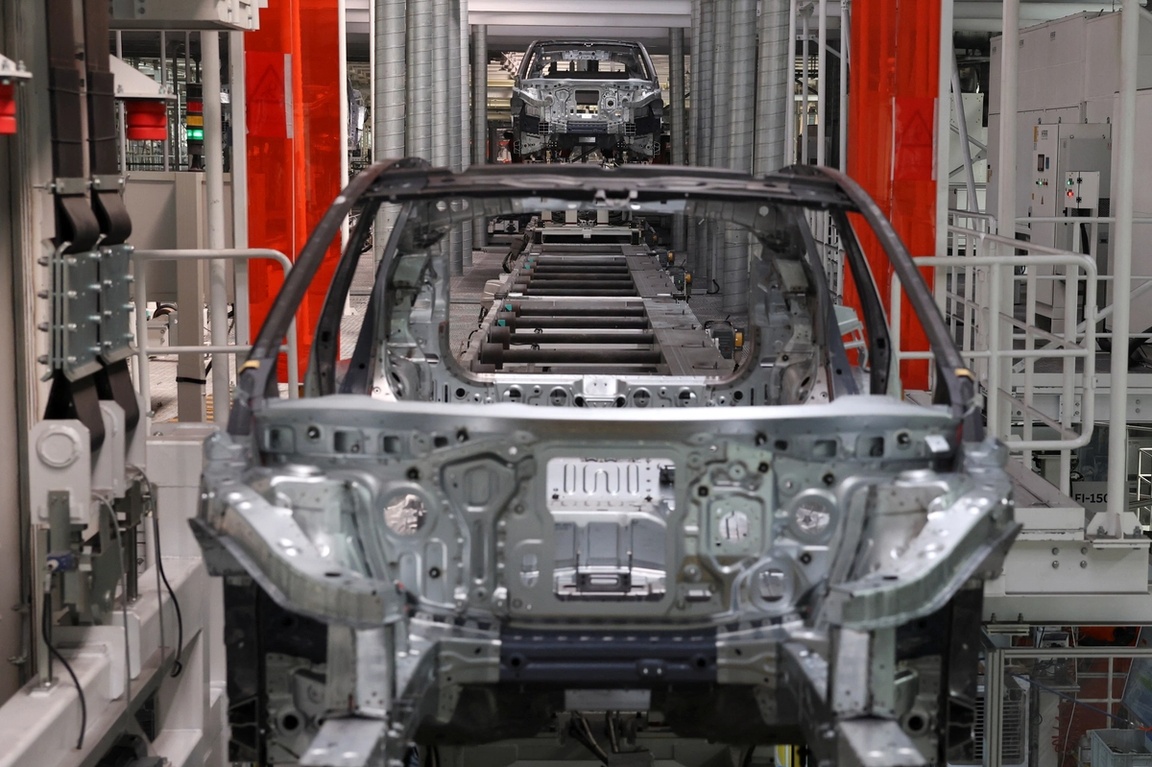 Florence Lo/Reuters Florence Lo/ReutersA Chinese EV company’s first South African-made car hints at both countries’ changing industrial strategies. The Leapmotor C10 hybrid is part of a joint venture with European giant Stellantis. South Africa’s auto industry is economically important, but relies on the European market, which is increasingly EV-focused; Pretoria has introduced an EV tax break to encourage manufacturers to pivot. Meanwhile, Beijing is eyeing southern Africa as trade disputes hit its exports to the West. Until now, sub-Saharan Africa has largely been disregarded as an EV market owing to its poor grids and lack of charging infrastructure, Asia Financial reported, but Chinese firms want to take advantage of the new tax break both to reduce manufacturing costs and to boost local demand. |
|
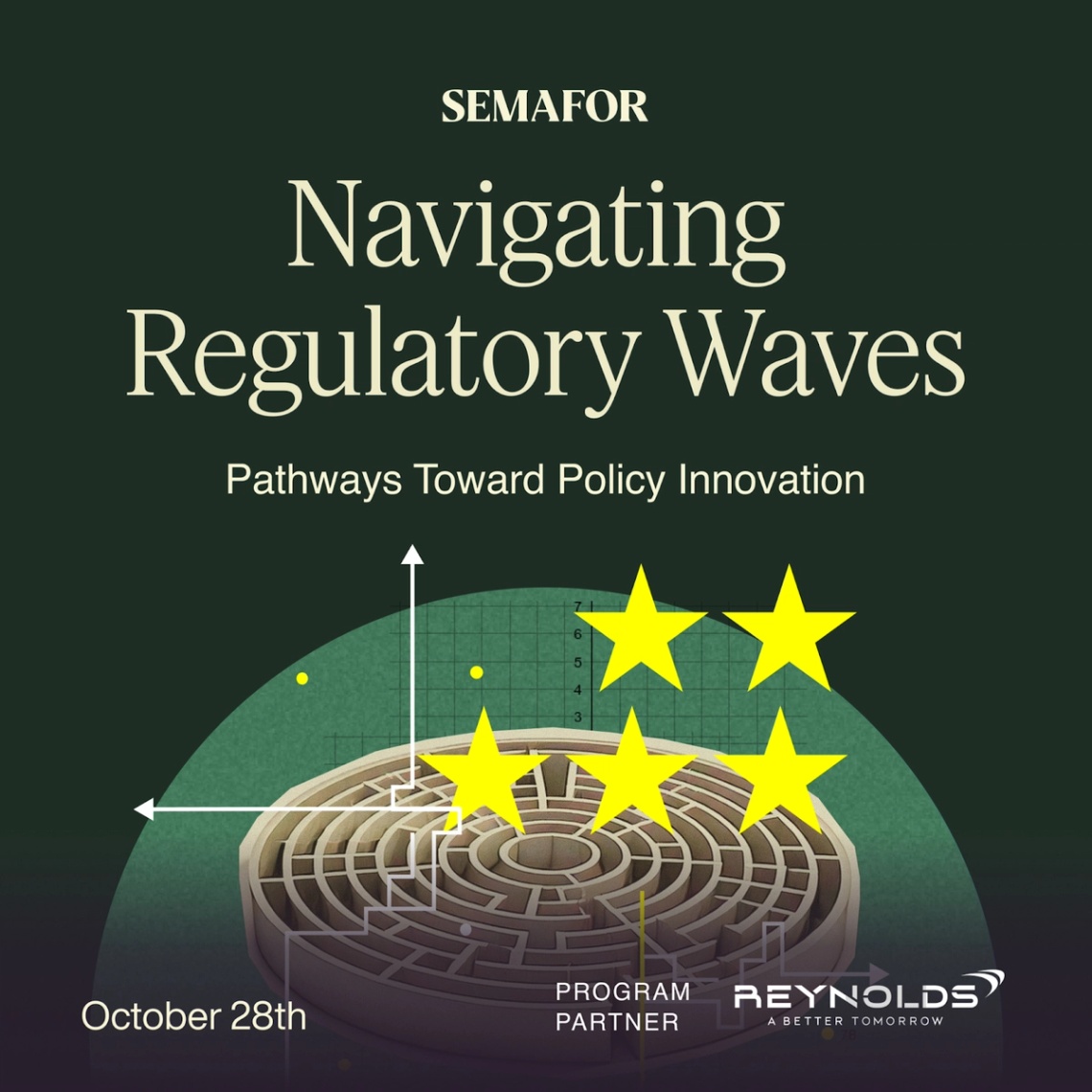 Regulation is evolving faster than ever, redefining how companies innovate and how consumers engage. From pharmaceuticals to food and beyond, shifting policies are reshaping markets, competition, and access to essential products and care. For patients and consumers alike, these changes determine everything from treatment availability to everyday safety. Together with Brian Crawford, President & CEO, The Beer Institute; Ricky Silver, CEO, Daily Harvest; Raqiyyah Pippins, Partner & Co-Chair of Consumer Products Group, Arnold & Porter; and Jake Bullock, Co-founder & CEO, Cann, Semafor will explore how businesses can stay resilient amid regulatory flux, what policy approaches best encourage responsible innovation, and how industry and government can work together to ensure accountability while unlocking progress.
Oct. 28 | Washington, DC | RSVP → |
|
|
Japan tutors welcome Chinese pupils |
Japan’s private tutoring schools are opening their doors to Chinese students amid a demographic crisis and a rise in immigration. The “cram schools” help students prepare for Japan’s intense entrance tests — a system that Chinese youth are well-suited for, given China’s own notoriously intense exam culture. As more Chinese families move to Japan, though, some school owners worry their reputation could suffer if they are seen as a “pro-China” facility, Nikkei wrote, reflecting anti-immigrant sentiment that persists throughout parts of Japanese society. The influx of immigrants has fueled the rise of new far-right political actors and dominated elections this summer; Japan’s new prime minister this week appointed an immigration minister for the first time. |
|
Bike-sharing is breaking records |
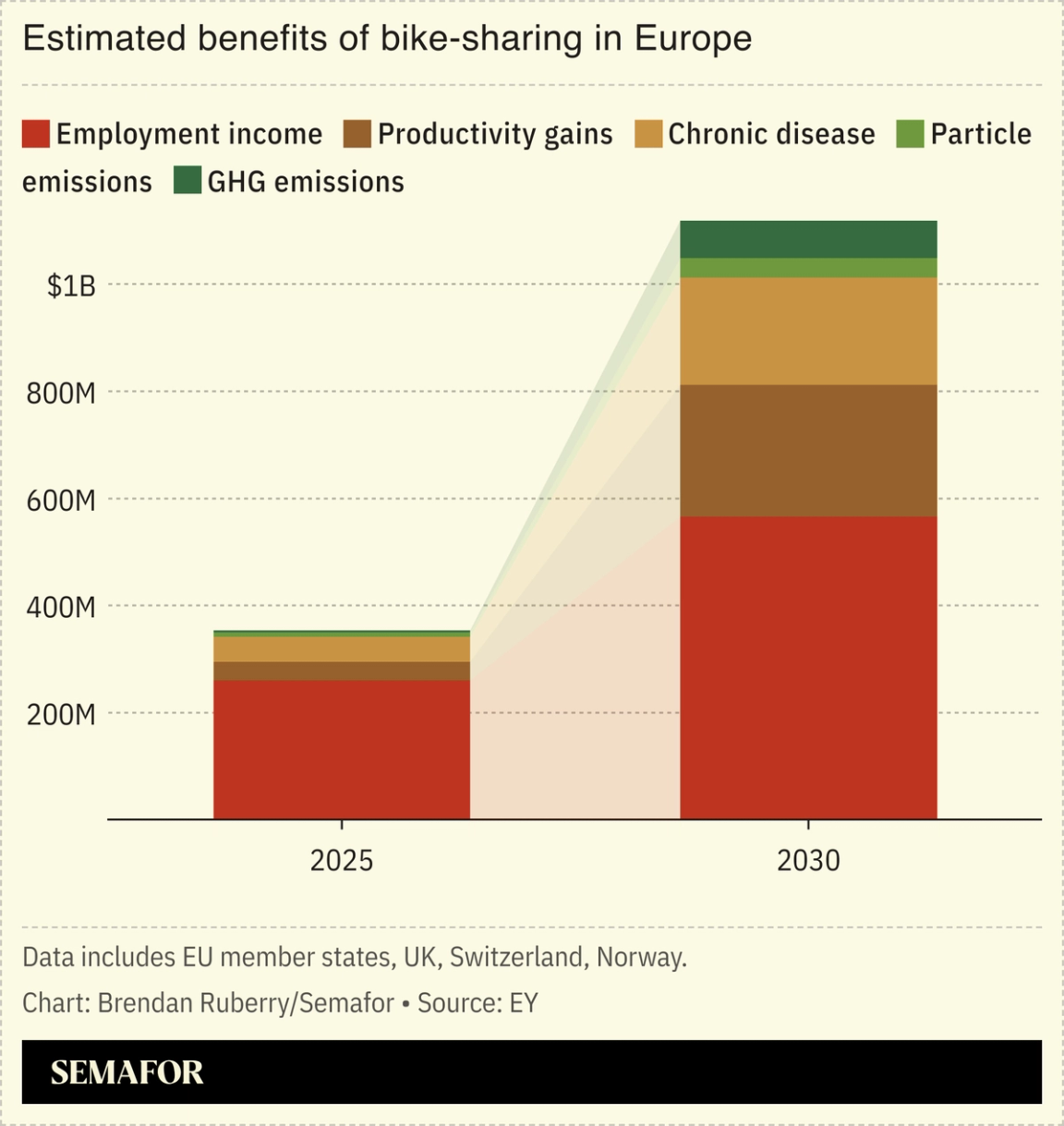 Bike-sharing programs worldwide are breaking records. Since the introduction of Paris’ Vélib in 2007, thousands of cities have introduced comparable systems, including docked and dockless, pedal-only and e-bike, bike or scooter. In Canada, Mexico, and the US, 225 million trips were taken in 2024, up 53 million year-on-year. European cities have also seen a rapid rise. Their ubiquity annoys some people, the urbanist writer Benjamin Schneider noted, and cities have responded with regulation and designated parking areas, while also offering improved cycle infrastructure — although North America’s streets “remain hostile places for people on bikes and scooters.” Bike-sharing is also becoming more expensive, Bloomberg reported: A half-hour Citi Bike ride in New York City can cost $15.59. |
|
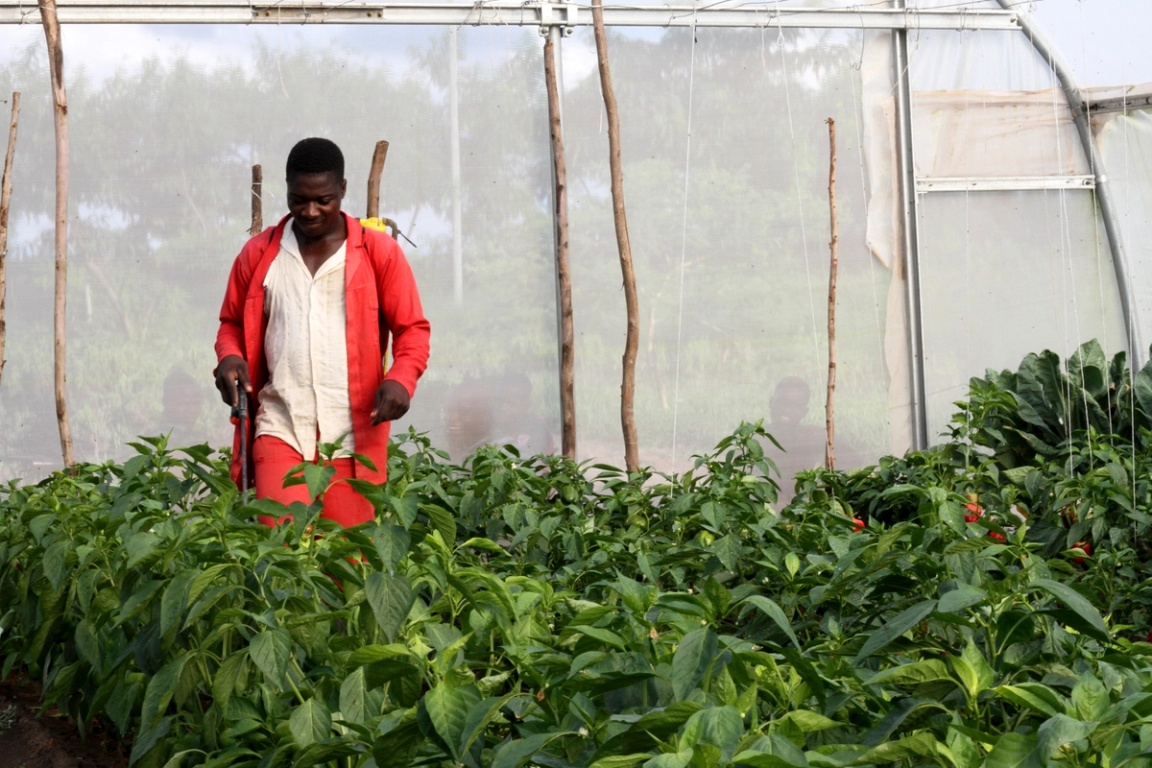 Angela Jimu/Universal Images Group via Getty Images Angela Jimu/Universal Images Group via Getty ImagesFarmers around the world are using AI to better analyze crops, improve yields, and replace manual labor. In Malawi, sugarcane and okra farmers are using an AI chatbot — built on ChatGPT’s technology and trained on government data and traditional knowledge — to give them instant advice in their own language, Rest of World reported. Canadian farmers are using AI to analyze vast datasets, while researchers in the US are eyeing what’s called “precision agriculture,” using a powerful computer that can tell farmers exactly where and when to add water or fertilizer to crops. “We’ve been talking about precision agriculture for decades,” one researcher said. “It’s really been aspirational for the most part.” |
|
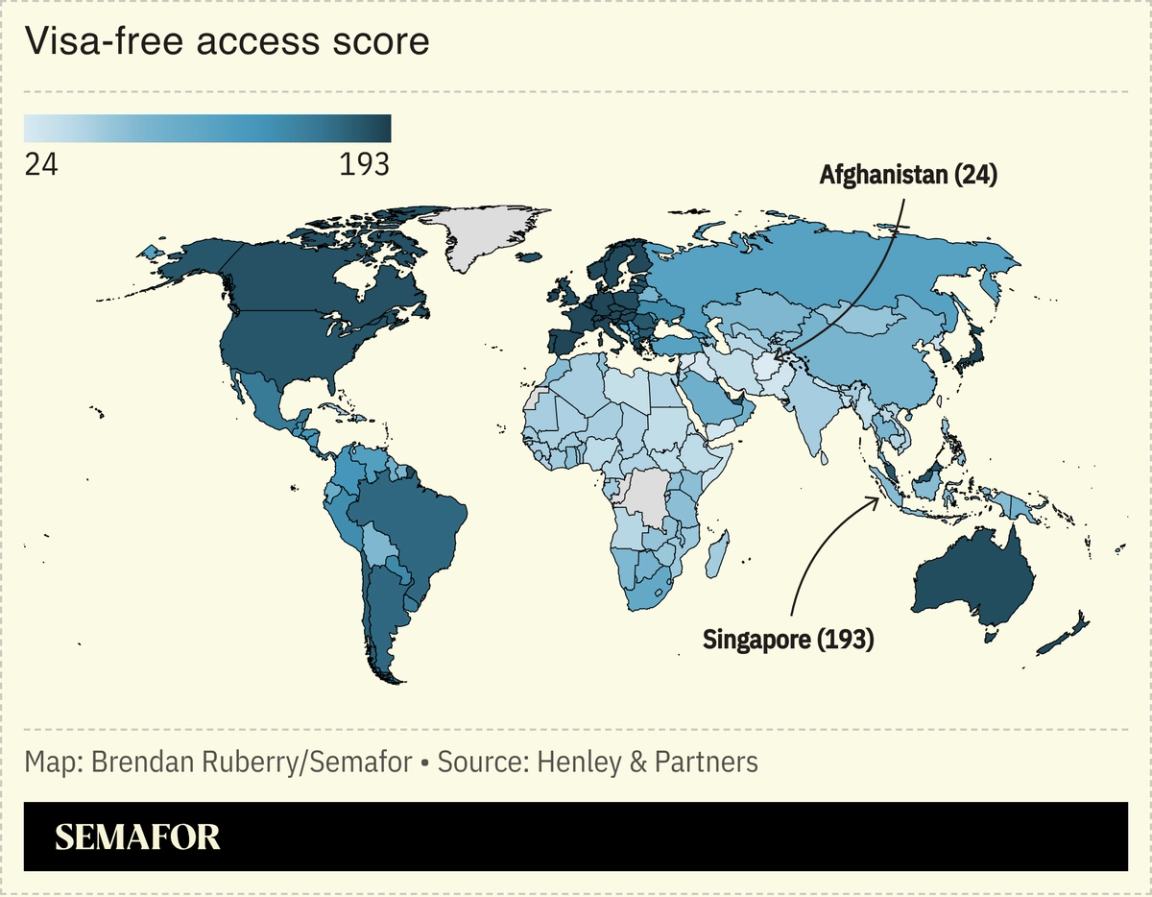 US passports are becoming less val |
|
|